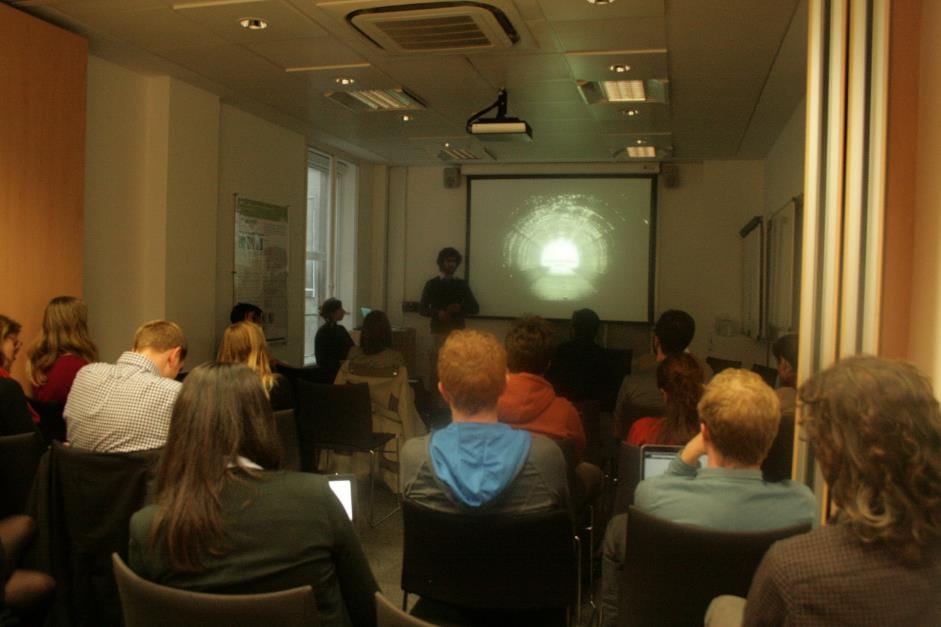What would be the impact of the April 17 OPEC meeting on the UK electricity market?
By tjmscas, on 13 April 2016
A freeze in output would stop adding to the excess supply that has caused prices to collapse from levels above GBP 70 per barrel seen in June 2014. Oil is very rarely used for electricity generation, only about 1-2% of the times in the UK. Given that the UK electricity system is based on the merit order of electricity generators in the country – i.e. the marginal cost of producing an extra unit of electricity, by which electricity generators with progressively higher costs are dispatched as demand increases, in order to minimise prices for consumers – oil is always used as a last resort because it always has the highest cost. In such a system, when the marginal generator is used it always sets the price. Thus, when oil is used it always sets the electricity price. Read the rest of this entry »
Gender equality in the workplace – Energy Demand in Practice seminar series
By ucqbpjf, on 8 March 2016
 Gender equality in the workplace has been a recurrent theme for Energy Demand in Practice, a student–led seminar series which explores the range of career paths in energy-related industries. Our audiences, aware of historically low rates of female participation in the energy industry have been keen to ask the speakers what it is like in their workplaces and whether they feel opportunities are equal. Read the rest of this entry »
Gender equality in the workplace has been a recurrent theme for Energy Demand in Practice, a student–led seminar series which explores the range of career paths in energy-related industries. Our audiences, aware of historically low rates of female participation in the energy industry have been keen to ask the speakers what it is like in their workplaces and whether they feel opportunities are equal. Read the rest of this entry »
Athena SWAN in the Bartlett – Bringing Us Together
By ucfaete, on 8 March 2016
Athena SWAN is the process for accreditation in higher education and research for their work to support women’s equal opportunities and advancement. The Bartlett, UCL’s global faculty of the built environment, chose to seek this accreditation as a whole, instead of the comprising Schools/Centres applying separately. This is a reflection on that process that started in October 2015 by one member of the self-assessment team. Read the rest of this entry »
International women’s day, inspiration from the past, present and hope for the future
By ucftns1, on 8 March 2016
I am a Research Associate in Energy Systems Modelling at UCL-Energy. I studied chemical engineering and for my PhD I developed multi-objective mathematical programming models that can help building more sustainable process industries and energy systems by looking to many different environmental life-cycle performance metrics in addition to economic criteria. My current job at UCL allows me to take the theories behind my modelling frameworks, with an initial focus on engineering and process unit operations, a step in further in aggregation to a systems level perspective. Within this systems perspective, the demand-side influence starts to take a bigger role and as much relevance as the supply-side operations. This allows me to exploit the synergies between my previous and current research experiences, which are very complementary in their theoretical perspectives. The arising combinations specifically tap on the pillars of sustainable development, which are based on integrating the economy, the environment and society, in a holistic manner.
 With regards to ‘women in science’, there are more than a few who inspire me. The earliest ‘women in science’ story that I heard about was Marie Curie’s one. Her life and career brought to my consciousness the very limited roles that women were expected and trained to play in society from their very early ages. These limitations of course translate in all the sorts of additional struggles and preconceptions that women face in society nowadays, and in particular in science still. I found very interesting how her success was in the end mostly in the hands of her husband, Pierre Curie, who decided to complain to the Nobel Prize jury against their discrimination towards his wife. Marie was about to be excluded from the nomination of the Nobel Prize in Physics in 1903 just because of her gender.
With regards to ‘women in science’, there are more than a few who inspire me. The earliest ‘women in science’ story that I heard about was Marie Curie’s one. Her life and career brought to my consciousness the very limited roles that women were expected and trained to play in society from their very early ages. These limitations of course translate in all the sorts of additional struggles and preconceptions that women face in society nowadays, and in particular in science still. I found very interesting how her success was in the end mostly in the hands of her husband, Pierre Curie, who decided to complain to the Nobel Prize jury against their discrimination towards his wife. Marie was about to be excluded from the nomination of the Nobel Prize in Physics in 1903 just because of her gender.
Read the rest of this entry »
The changing face of architecture: Value difference
By Sofie L J Pelsmakers, on 8 March 2016
The built environment is still not equated with a diverse work force unlike the stakeholders with whom we work with and for. The annual survey of women in architecture released last month, makes for uneasy reading: deep-rooted inequalities and perceptions of gender differences that seem to affect women architects particularly badly. So on international women’s day I’d briefly like to share my journey as a woman in architecture practice, research and academia. In June 2015, I was shortlisted among 11 others by the RIBA as one of its ‘Role Models’, hopefully inspiring others that they too can forge a successful career in architecture. Since I shared my story as part of the Role Model Project, I noticed a positive change within myself and how I view myself. It is hard to explain, but I am more at ease with myself and more accepting of myself. I no longer fear of speaking out about my background (read about it here) or being a woman in a still mostly male dominated profession (more about that here). On reflection, this makes sense: sharing our stories so publicly received positive responses and made me realise that I was wrong to be afraid to speak out. I no longer feel as vulnerable sharing my personal journey: I have a voice and I want to use my voice on issues that matter to me in the hope that it inspires others and to draw out the value of differences. I also realised I should no longer be embarrassed about my background, but celebrate how far I have come despite the challenges along the way and to see and use this as a strength. Read the rest of this entry »
Two months since COP21, where are we now?
By ucftrj0, on 21 January 2016
In December 2015 immediately following the publication of the COP21 Paris Agreement I wrote a short note on the competing reasons for pessimism and optimism. What follows expands on that theme. I am going to focus on three things: COP21, the confirmation that 2015 has been the warmest year on the instrumental record, and continued reports that coal consumption in China may have peaked. Read the rest of this entry »
‘Is there life after PhD?’ First event from the Energy Demand in Practice seminar series
By zcft023, on 20 January 2016
Blog by Virginia Gori, Pamela Fennell and Lisa Iszatt
Energy Demand in Practice is a seminar series focussing on the different roles and opportunities available within the energy demand field. The aim of the seminars is to explore the range of career paths that are available to PhD graduates, providing students with inspiration, advice on matters such as workplace skills that might be required, and networking opportunities. The Energy Demand in Practice team currently consists of Virginia Gori, Pamela Fennell and Lisa Iszatt, who set up this series in collaboration with LoLo management at UCL in response to feedback from students that more information was needed on careers in the field of Energy Demand. The events are primarily aimed at LoLo students but all UCL students are welcome.
Our first event “Is there life after a PhD?” aimed at exploring the range of possible careers in energy and investigating how to best use the skills acquired in the PhD. Two speakers introduced their ‘life after a PhD’; their career paths and the lessons they have learned along the way. This was followed by a panel session with recent graduates responding to a range of questions from the floor on topics such as internships, day to day tasks, gender equality and how to sell a PhD.
In the aftermath of the Paris COP Agreement – grounds for optimism or pessimism?
By ucftrj0, on 16 December 2015
In contrast to the failure of the 2009 Copenhagen talks there is clearly more to celebrate with the Paris Climate Deal. The achievement of getting all 195 countries to commit to emission reduction is a diplomatic success, but at the level of concrete commitments, the deal falls well short of what is needed to prevent dangerous Climate Change. So what is my short list of indicators, and what is my overall assessment of prospects for the future?
A U.S. Presidential position on Climate Change as strong as it is likely to get for a decade.
An agreement that displays a profound unreality about ends and means, but may nevertheless provide a foundation that future progress can be built upon. A UK government that, having provided political leadership for many years, balks at backing CCS.
But, a rejuvenated IEA providing a powerful new voice on energy efficiency. Growth in renewables that, if continued, may see global consumption of fossil fuels peak in the mid-to-late 20s.
A reawakened China led by a political class that, in the aftermath of a century and a half of turmoil, famine and war, probably has a keen awareness of the possible costs of future, climate-induced instability.
And an agreement on climate backed, for the first time, by Saudi Arabia and other major oil producers.
It is still, just, to play for.
Photo credit: Pixabay – Public Domain CC0 – timmz
The ground-breaking Paris Agreement leaves no room for delay in cutting emissions
By ucfaspy, on 15 December 2015
The achievements of the Paris Agreement are significant. The contrast with the failure of Copenhagen in 2009 are captured in the following Guardian headlines: Low targets, goals dropped: Copenhagen ends in failure (19th December 2009) and Paris climate change agreement: the world’s greatest diplomatic success (14th December 2015).
The greatest achievement has been in getting all 195 countries committing to a strong level of ambition, to hold the increase in the global average temperature to well below 2 °C above pre-industrial levels and to pursue efforts to limit the temperature increase to 1.5 °C. This reflects strong recognition of the climate science in these negotiations. Read the rest of this entry »
The Paris Agreement – second time lucky?
By ucqbpsm, on 14 December 2015
So the deal is done. And a very curious deal it is too.
As I said in the first part of this blog, the Paris Agreement is our second attempt at implementing the UNFCCC. The idea was to move away from the top-down mandatory, rich country approach of the Kyoto Protocol to a more bottom-up, voluntary approach with all countries involved. To their enormous credit, the negotiators have succeeded. Read the rest of this entry »
 Close
Close









